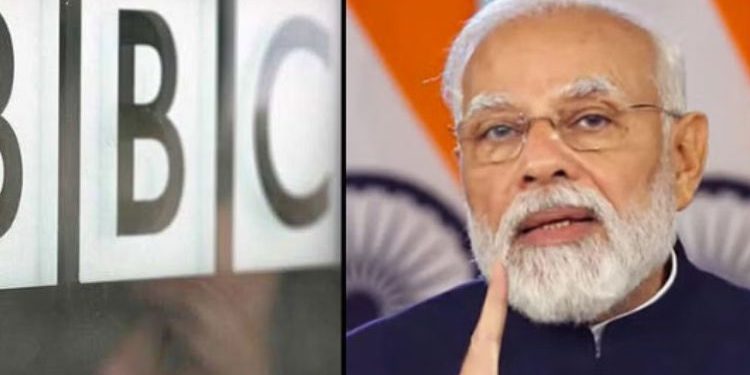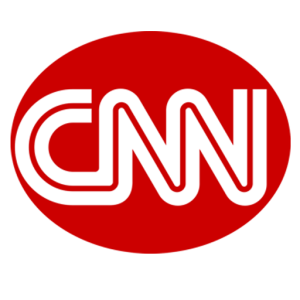The two-part documentary reportedly questions PM Modi’s leadership during the 2002 Gujarat riots, which resulted in the deaths of around 1,000 Muslims. The BBC documentary has stirred controversy in India and has been censored by the government, but is set to be screened in the United States.
The BJP has a history of being thin-skinned to criticism, so this has really gone under the skin.
What Is This Documentary All About?
A two-part bbc documentary on modi that investigated certain aspects of Prime Minister Narendra Modi’s role in the 2002 Gujarat riots that left over 1,000 people dead, most of them Muslims, has stirred controversy in India. The Indian government has called it a “propaganda piece” and blocked sharing of clips from the show on social media. The film has sparked outrage in human rights organisations, including Amnesty International. But it has also received support from people with ties to Modi’s ruling Bharatiya Janata Party, such as MP Bob Blackman and Tory peer Rami Ranger.
The documentary focuses on events that took place during Modi’s tenure as chief minister of the state of Gujarat. The riots began after a train carrying Hindu pilgrims was set on fire, sparking a wave of violence against Muslims in the region. The BBC says it investigated claims that the riots were motivated by religion and caste and that Modi did not do enough to stop them.
The BBC defended the documentary, saying it was accurate and did not seek to influence the outcomes of the investigation. But the government has accused it of bias and a colonial mindset. It has also threatened to disrupt U.K.-Indian ties, which are important for both countries.
Indian tax officials have searched BBC offices in Delhi and Mumbai, just weeks after the broadcaster aired a documentary critical of PM Modi. The search reveals a growing crackdown on press freedom in one of the world’s largest democracies. Bobby Ghosh joins Amna Nawaz to discuss the latest developments.
The two-part series, India: The Modi Question, investigates allegations that PM Modi orchestrated anti-Muslim riots in his home state of Gujarat in 2002. It was banned from airing in India and caused controversy in the UK, where MPs weighed in on the controversy. The film also prompted criticism from some British politicians who have close ties to Modi’s party. One of them, Tory MP Bob Blackman, called it a “hatchet job” and demanded an apology from the BBC. Another, Rami Ranger, wrote to the BBC demanding to know whether its Pakistani-origin staff were behind the nonsense.
Why Is The Documentary Being Censored?
When the BBC’s India: The Modi Question aired in Britain this month, it caused a huge controversy in India. The documentary looks into Modi’s role in the 2002 Gujarat riots, in which over 1,000 people, mostly Muslims, died. The riots occurred during his tenure as Chief Minister of the state of Gujarat. The documentary’s airing has angered the ruling Hindu nationalist Bharatiya Janata Party (BJP).
The government has accused the BBC of being biased and anti-Indian, and it has tried to block people from watching it. The government has also threatened to disrupt UK-India ties if the documentary is shown. Despite the government’s efforts to ban the documentary, the documentary is still being widely viewed in the UK and on social media. The documentary has become a rallying point for the Indian diaspora, who are protesting against the government’s attempts to censor it.
One of the main reasons why the documentary has caused so much controversy is because it goes into the details of the riots. It also discusses the roles that the BJP, the RSS, and the Vishwa Hindu Parishad played in the riots. The document claims that the riots were part of a plan to “ethnically cleanse” India. This is a serious allegation and should not be taken lightly.
In an attempt to stop the documentary from being viewed, the government has used its emergency laws to block links and clips of it from appearing online. YouTube and Twitter have complied with the government’s request, which is not unusual. However, the backlash against this move is growing. Several prominent members of the Indian American Muslim community have spoken out against the decision to block the documentary.
In addition, two human rights groups have planned to hold a screening of the documentary in Washington on June 20, which is just days before Modi’s official state visit to the United States. The event will be held in partnership with Amnesty International and Human Rights Watch. The organisers have invited policymakers, journalists, and analysts to attend the screening.
What Are The Claims Made In The Documentary?
The two-part documentary examines Prime Minister Narendra Modi’s role in anti-Muslim violence in the state of Gujarat in 2002, when he was chief minister. It cites a report by the British Foreign Office, which says that Modi was “directly responsible” for creating the climate of impunity that enabled the killings of more than 1,000 people. The Indian government called the film “hostile propaganda and anti-India garbage” and invoked emergency laws to block links and clips online. It also used its influence to pressure YouTube and Twitter to take down the content.
The controversy surrounding the documentary comes as India is increasingly courted by western powers for its economic growth and ties to the US and Europe. But the country has a reputation for being thin-skinned to criticism, especially from international media. The BBC documentary is particularly sensitive because it looks at allegations of past atrocities and discrimination that the country’s leaders have been accused of turning a blind eye to as they strike trade deals and alliances with countries around the world.
While the claims in the documentary are not new, they are receiving fresh scrutiny, both because of the documentary itself and a larger debate about how far India should go to protect its citizens from political interference. The controversy has also highlighted the extent to which the country is willing to use its power to silence dissent and to protect its leaders.
The government argues that the documentary is not just false but dangerous because it could lead to violence against minorities in the country. However, critics have argued that the documentary is simply a neutral analysis of the evidence available and does not call for any violent action.
The BBC has stood by its reporting for the documentary and says that it is up to viewers to decide whether or not it contains bias. The company has said that it will continue to defend its journalism in the face of mounting attacks. Indian tax officials inspected the BBC’s offices in Mumbai and Delhi in February, while the financial crime agency opened an investigation into the broadcaster in April over alleged violations of foreign exchange rules.
What Are The Implications Of The Documentary?
A BBC documentary that has caused a storm in India is set to be screened in the United States, just days ahead of Prime Minister Narendra Modi’s visit. “India: The Modi Question” examines the rise of Modi and controversies surrounding his early career, including his link to a right-wing Hindu organisation and his leadership during the 2002 Gujarat riots, which left more than 1,000 people — mostly Muslims — dead. The two-part film has gained global recognition and has been subject to censorship in India. It also gained access to a confidential UK government report that investigated the riots and blamed Modi for failing to prevent them. It has been criticized for its “bias” and a continuing colonial mindset, with a BJP spokesman calling the documentary a “malicious attempt to tarnish the image of PM Narendra Modi.”
The Indian government has responded by making it difficult for anyone in the country to view the documentary. Indian tax officials raided BBC offices in Delhi and Mumbai, seizing phones, accounts and financial documents. The move was widely condemned, and the BBC has said it won’t be intimidated. The raids have raised questions about dwindling democratic freedoms in what is often called the world’s largest democracy.
Even though the documentary is not available in India, it is still being watched, albeit on unofficial platforms. It has become a major talking point on social media and in private discussions amongst many Indians. In addition, student groups have attempted to conduct wildcat screenings of the documentary. But they have faced arrests, violence from rightwing groups and accusations of treason.
The BBC has defended the documentary and said it was “rigorously researched”. A former U.K. foreign secretary, Jack Straw, was interviewed for the piece and gave his scathing assessment of Modi’s handling of the riots. The documentary is based on evidence that has been reported by various sources over the years, but has been gathered together for the first time in one place and given context. The BBC says it does not have an agenda and has backed the investigation of the riots by using the highest editorial standards.
Conclusion
The BBC documentary on Modi offers a comprehensive exploration of Narendra Modi’s political journey and leadership. Through a critical lens, it delves into his policies, controversies, and impact on India’s socio-political landscape. While some view him as a transformative leader, others criticize his governance. The film encourages viewers to reflect on the complexities of modern Indian politics.
FAQs:
- What is the main focus of the BBC documentary on Modi? The BBC documentary on Modi primarily focuses on the political career and leadership of Narendra Modi, the former Prime Minister of India. It examines his policies, controversies, and the impact of his governance on India’s society and politics.
Does the documentary present a balanced perspective on Narendra Modi? The documentary attempts to present a balanced perspective on Narendra Modi’s leadership, policies, and impact. It includes insights from various experts, critics, and supporters, offering a nuanced view of his tenure as Prime Minister. However, viewers may interpret the film’s objectivity differently, depending on their own perspectives and biases



